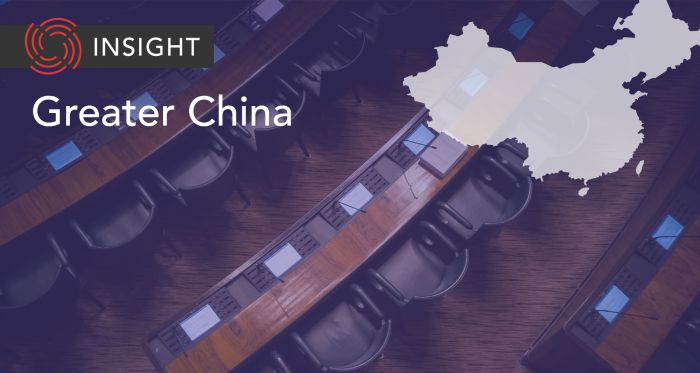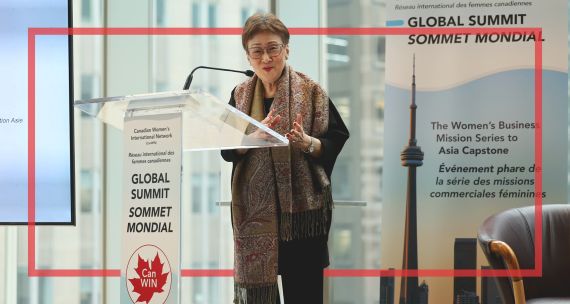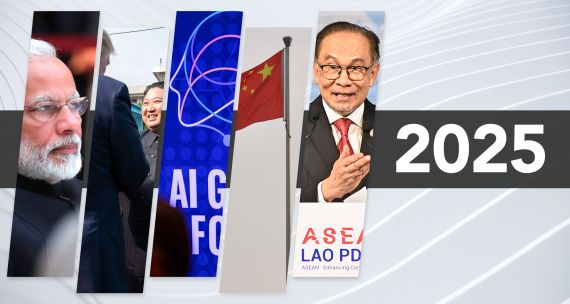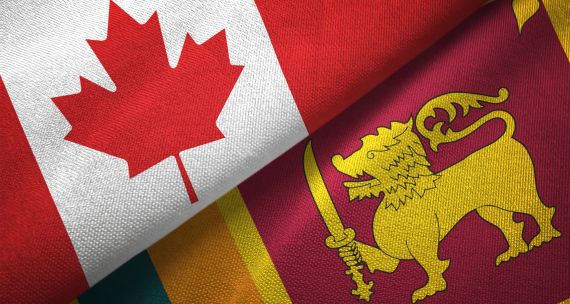The Takeaway
On November 26, the foreign ministers of China, Japan, and South Korea formally convened for the first time in four years and pledged to resume the annual China-Japan-Republic of Korea leaders' meeting. The agreement comes as the geopolitical balance in the region continues to shift, and signals a possible easing of Beijing's assertive, confrontational foreign policy approach that dominated Northeast Asian relations for nearly a decade.
In Brief
- For the first time since 2019, the three nations’ foreign ministers met for the Trilateral Foreign Ministers’ Meeting. At the summit in Busan, South Korea, lasting approximately 100 minutes, Wang Yi, Kamikawa Yoko, and Park Jin vowed to “create conditions for the China-Japan-Republic of Korea leaders' meeting” at the “earliest mutually convenient time.”
- The three parties highlighted several areas in which trilateral co-operation should be strengthened, including trade, people-to-people exchanges, technology and digital transformation, sustainable development and climate change, public health, aging populations, and peace and security. Other topics of discussion at the 10th Trilateral Meeting included security issues on the Korean Peninsula, the Israel-Hamas conflict, and the Russia-Ukraine war.
- The three-way leaders' summit was established in 2008. While it was intended to be an annual event, it has been paused several times. For example, it was paused between 2012 and 2015 due to territorial disputes and historical antagonisms, and from 2015 to 2018 due to heightened diplomatic tensions. The summit has been on hold since 2019 due to the COVID-19 pandemic, deteriorating relations between China and Japan and China and South Korea, Beijing’s opposition to Seoul and Tokyo’s deepening security co-operation with Washington, and continuing disagreements around the ‘comfort women’ issue between Japan and South Korea.
- The next China-Japan-South Korea leaders’ summit is tentatively planned for early 2024 and will be the first since 2019. Seoul will act as chair.
Implications
China’s moves to ‘make amends’ with its East Asian neighbours comes at a time when Beijing has adopted a “friendlier” posture towards its geopolitical competitors. Historically Washington’s strongest allies in the Asia Pacific, Tokyo and Seoul have maintained robust security co-operation with the U.S. military in recent years. Earlier in August, Japanese Prime Minister Kishida Fumio and South Korean President Yoon Suk Yeol convened with U.S. President Joe Biden at Camp David in Maryland, where the three parties reaffirmed their “ironclad” friendship. Beijing criticized the summit, calling it a “deliberate attempt to sow discord” in the region. However, following the summit between Biden and Chinese President Xi Jinping in San Francisco on the margins of the Asia-Pacific Economic Cooperation, commentators remarked that the Biden-Xi meeting could mark a new era of improved relations between the two superpowers, which could in turn pave the way for renewed Sino-Japanese and Sino-Korean relations.
At the foreign ministers’ meeting, which might serve as a prelude to the revived leaders’ summit, the three countries remained immovable on some policy issues. For instance, while Japan’s Kamikawa Yoko continued to press for the removal of China’s ban on Japanese seafood-related exports, her Chinese counterpart, Wang Yi, remained firm on the decision, calling Japan’s discharge of treated radioactive wastewater into the ocean “irresponsible.” Kamikawa also denounced the recent South Korean court ruling in favour of former ‘comfort women,’ calling it “absolutely unacceptable” and “contrary to international law and agreements between the two countries.”
Nonetheless, the three ministers showed an overall commitment to increasing co-operation in areas such as trade and investment. In a statement, Wang Yi called for the recommencement of negotiations for a China-Japan-South Korea free trade agreement, which has been in the works since 2013. Together, the three countries account for 20 per cent of the world’s population and 25 per cent of global GDP. Despite Washington’s efforts to isolate Chinese tech firms from Japanese and Korean chip suppliers, Wang also pushed to deepen scientific collaborations among the three countries, particularly in cutting-edge fields like big data, blockchain, and artificial intelligence. He also noted the importance of improving regional production networks and supply chain resilience. Beijing’s focus on mending ties with its traditional trade partners comes at a time when the country is experiencing a lagging post-pandemic economy and historical net outflow of foreign direct investment.
Regional peace and security also played a key role at the foreign ministers’ summit. For Seoul, North Korea’s nuclear arms development and espionage efforts, such as the recently reported launch of a “military reconnaissance satellite,” have the potential to shake up regional stability.
What's Next
- Promises made, promises kept?
While the foreign ministers’ meeting was productive, all eyes will be on the trilateral leaders’ summit set to take place in the coming months. It remains to be seen whether the upcoming leaders’ meeting will mirror the foreign ministers’ reconciliatory tone and spur concrete action. On the security question, for instance, while Wang Yi acknowledged that continued tensions on the Korean Peninsula are “not in the interests of either party,” it is unclear whether Beijing is willing to leverage its influence over Pyongyang to de-escalate the situation, or if it will simply tolerate the status quo.
- Progress is reassuring, but complex issues remain
While the three countries have pledged to work together more closely, the foreign ministers’ summit demonstrated that delicate issues rooted in historic disputes will continue to challenge relations in the region. These issues include Taiwan, territorial disputes in the South China Sea, and Beijing’s continued support of North Korea. For now, the three countries will likely work to strengthen co-operation on less politically sensitive issues, such as climate change and economic recovery.
• Produced by APF Canada's Greater China team: Maya Liu (Program Manager); Karen Hui (Analyst); and Chloe Yeung (Analyst). Edited by: Ted Fraser. Design by: Chloe Fenemore.







